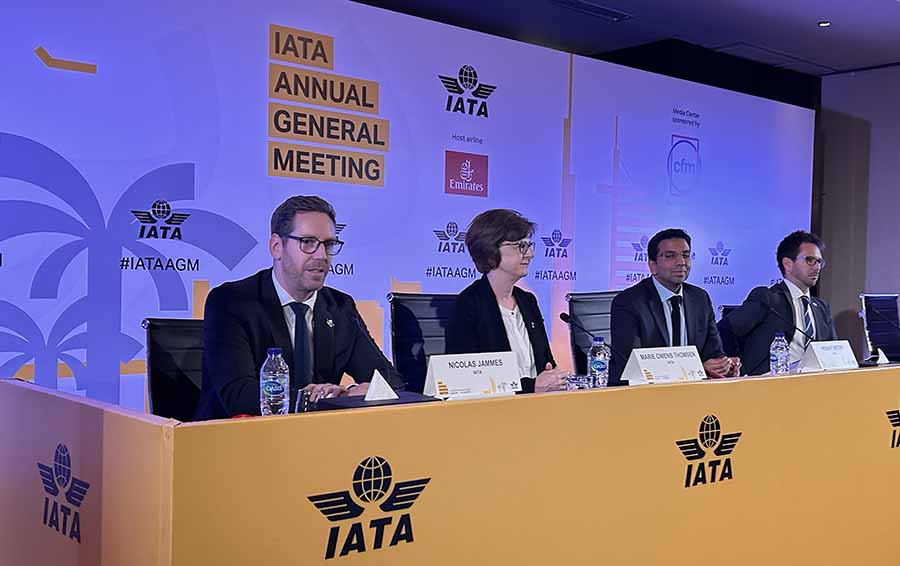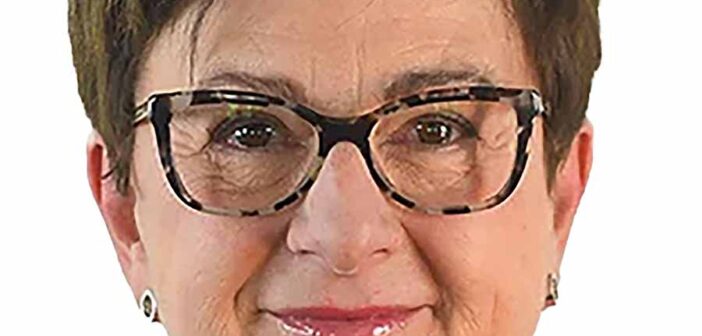
Production of sustainable aviation fuel (SAF) has trebled but further advancements are necessary, the annual congress of the International Air Transport Association (IATA) has been told in Dubai.
IATA calculates the production of Sustainable Aviation Fuels (SAF) production in 2024 will triple to 1.9bn litres, but it still accounts for just 0.53pc of aviation’s fuel need.
SAF is expected to contribute 65pc of the carbon emissions mitigation for airlines to reach net zero by 2050, stressing the importance of accelerating SAF usage.
Governments could implement policy measures to boost SAF production, such as diversifying feedstocks, promoting co-processing, incentivizing output mix improvement, and supporting investments in renewable fuel production.
Marie Owens told a media briefing that n investment of $150m a year will be needed to reach net zero by 2050.. “There are many ways that we can decarbonise. Unfortunately, none of them are readily available today. So there lies our challenge. And of course, all these solutions are mostly outside of airlines’ sphere because airlines are a service. They transport people and goods and they are normally not in the business of producing fuel or aircraft or many of the other ways and levers that we need in our decarbonisation process. “
almost everybody who has analysed how aviation can get to zero by 2050 agrees on the fact that the most important ingredient is going to be SAF. Therefore, of course, we focus a lot on trying to get other people to embark upon this journey with us and make sure that we can have more SAF being produced.
Now, the increase that we need is actually as great as by a thousand times. From the current 23 SAF production to 2050, we need to increase the SAF production by a factor of 1,000. So that sounds obviously staggeringly challenging and this would take production from half a million tons to 500 million tons. If we manage to do this, it sounds like it’s really almost not possible. But the thing is, the world has achieved these types of challenges many times over in the past. And the most obvious one, I guess, is wind and solar energy.”
A recent IATA survey indicates strong public support for SAF, with 86pc of travelers agreeing that governments should incentivize airlines to use SAF and advocating for leading oil corporations to prioritize SAF production.
The International Air Transport Association (IATA) is establishing the SAF Registry to promote the uptake of Sustainable Aviation Fuels (SAF) and authentically account for emissions reductions from SAF.
Seventeen airlines, a group, national authorities, OEMs, and a fuel producer support the development of the Registry, set to launch in the first quarter of 2025.
SAF is projected to contribute up to 65pc of the carbon mitigation needed to reach net zero carbon emissions in aviation by 2050.
The Registry will enable airlines to access SAF from different sources, ensure compliance with regulations like CORSIA and the EU Emissions Trading Scheme, and provide cost-effective participation while involving various stakeholders for governance and oversight.
Airlines:
- Air Canada
- Air France-KLM
- All Nippon Airways (ANA)
- American Airlines
- Cathay Pacific
- Delta Air Lines
- DHL Group
- Emirates
- International Airlines Group (IAG)
- Japan Airlines
- Kenya Airways
- LATAM
- Malaysia Aviation Group
- Qatar Airways
- SAS
- Singapore Airlines
- SWISS
- United Airlines
National Authorities
- Brazil-ANAC
- Japan-JCAB
- Kazakhstan-AAK
- Malaysia-CAAM
- Singapore-CAAS
- Switzerland-FOCA
OEMs:
- Airbus
- Boeing
- GE Aerospace
Fuel producers
- World Energy




